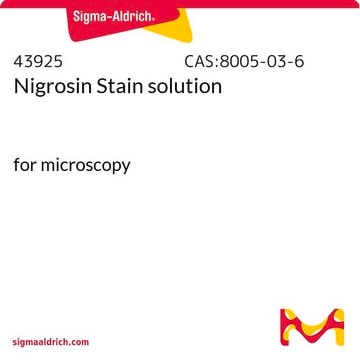H3398
DL-β-Hydroxylauric acid
≥99% (GC)
Synonym(s):
3-Hydroxydodecanoic acid
Sign Into View Organizational & Contract Pricing
All Photos(1)
About This Item
Empirical Formula (Hill Notation):
C12H24O3
CAS Number:
Molecular Weight:
216.32
MDL number:
UNSPSC Code:
12352211
PubChem Substance ID:
NACRES:
NA.25
Recommended Products
Assay
≥99% (GC)
form
solid
functional group
carboxylic acid
lipid type
saturated FAs
shipped in
ambient
storage temp.
2-8°C
SMILES string
CCCCCCCCCC(O)CC(O)=O
InChI
1S/C12H24O3/c1-2-3-4-5-6-7-8-9-11(13)10-12(14)15/h11,13H,2-10H2,1H3,(H,14,15)
InChI key
MUCMKTPAZLSKTL-UHFFFAOYSA-N
Biochem/physiol Actions
DL-3-Hydroxydodecanoic acid (3HDD) is a racemic mixture of D- and L-3HDD. 3-hydroxydodecanoic acid is found as a monomer in the construction of polyhydroxyalkanoates. 3HDD is used to study the roles of β-hydroxy fatty acids in chronic inflammation and insulin resistance and the biosynthesis of diffusible signal factors involved in quorum sensing.
Signal Word
Warning
Hazard Statements
Precautionary Statements
Hazard Classifications
Acute Tox. 4 Oral
Storage Class Code
11 - Combustible Solids
WGK
WGK 3
Flash Point(F)
Not applicable
Flash Point(C)
Not applicable
Personal Protective Equipment
dust mask type N95 (US), Eyeshields, Gloves
Certificates of Analysis (COA)
Search for Certificates of Analysis (COA) by entering the products Lot/Batch Number. Lot and Batch Numbers can be found on a product’s label following the words ‘Lot’ or ‘Batch’.
Already Own This Product?
Find documentation for the products that you have recently purchased in the Document Library.
Customers Also Viewed
Shao-Ping Ouyang et al.
Biomacromolecules, 8(8), 2504-2511 (2007-07-31)
Pseudomonas putida KT2442 produces medium-chain-length (MCL) polyhydroxyalkanoates (PHA) consisting of 3-hydroxyhexanoate (HHx), 3-hydroxyoctanoate (HO), 3-hydroxydecanoate (HD), and 3-hydroxydodecanoate (HDD) from a wide-range of carbon sources. In this study, fadA and fadB genes encoding 3-ketoacyl-CoA thiolase and 3-hydroxyacyl-CoA dehydrogenase in P.
Daniel K Y Solaiman et al.
Biotechnology letters, 28(3), 157-162 (2006-02-21)
Pseudomonas corrugata was selected from a screening process for the bioconversion of inexpensive soy molasses into medium-chain-length poly(hydroxyalkanoates) (mcl-PHA). We obtained yields of 1.5 g cell dry weight (CDW)/l culture with growth medium supplemented with 2% (w/v) soy molasses, and
K Kunii et al.
Microbios, 105(412), 153-161 (2001-06-21)
The Gram-negative bacterium Acinetobacter species ODB-L2 produces lipopolysaccharide (LPS) in culture broth. The LPS could not be purified by conventional extraction methods using 90% phenol/water or 90% phenol/chloroform/petroleum ether mixed solvent. Extraction was achieved employing an admixture of chloroform, ethanol
Anelise M Tonin et al.
Life sciences, 86(21-22), 825-831 (2010-04-20)
We investigated the in vitro effects of 3-hydroxydodecanoic (3HDA), 3-hydroxytetradecanoic (3HTA) and 3-hydroxypalmitic (3HPA) acids, which accumulate in tissues of patients affected by mitochondrial trifunctional protein (MTP) and isolated long-chain 3-hydroxyacyl-CoA dehydrogenase (LCHAD) deficiencies, on various parameters of energy homeostasis
J S Chickos et al.
Journal of clinical laboratory analysis, 16(2), 115-120 (2002-04-12)
Current diagnostic tests to detect disorders of fatty acids metabolism, such as long-chain hydroxyacyl CoA dehydrogenase deficiency (LCHAD), are hampered by insensitivity or a long delay time required for results. Children with LCHAD deficiency are known to excrete 3-hydroxydicarboxylic acids
Our team of scientists has experience in all areas of research including Life Science, Material Science, Chemical Synthesis, Chromatography, Analytical and many others.
Contact Technical Service














